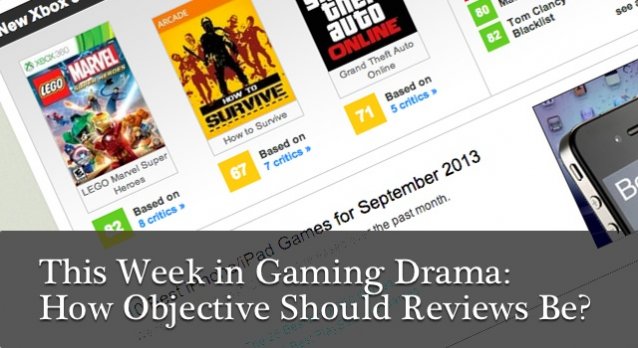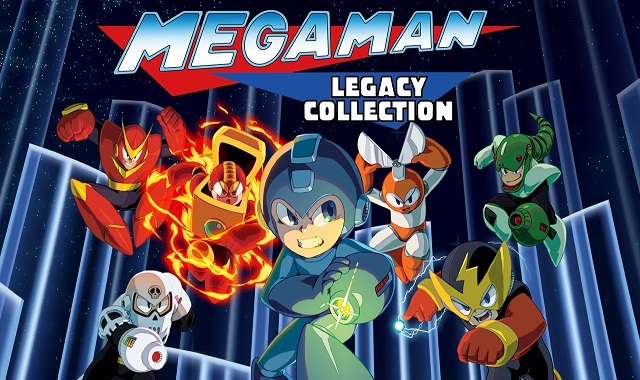


Hardly a controversy of the week, more like a controversy of Forever and All Time, but I did just make a Google search that resulted in a site that promised to offer “unbiased reviews” for all platforms.
I find it unlikely that this site will deliver on its promise, unless that website is run by an merciless AI, or perhaps God, in which case I will apologize. If that website is maintained by humans, however, it will probably fall short of its stated goal. Of course, jokes aside, there’s no approaching true objectivity when it comes to anything humans do ever: you know this. Everyone knows this. I am sure that what this website is instead promising is that their reviews will attempt to reduce bias as much as possible (I am being generous, I have not actually looked at this site). Much like the television news media and their own promise of objectivity, unbiased game reviews dot com is probably going to attempt to be as objective as possible. This will probably mean stripping their reviews down to just the facts and presenting as little opinion as possible, in the hopes that the reader will be able to take this information and decide whether or not they like it for themselves. This is something that is possible! But I am 100% sincere when I tell you this in response: this is completely the opposite of what you actually want. It does not make for good reviews.
The closest anyone is going to come to an unbiased review is a list of features. The game has an “upgrade system,” features over “two hundred unique guns,” and has a “story”. This is the sort of bullshit you can easily read off the back of the case the game came in and it tells you only what some inhuman marketing cyborg believes might interest humans in the game. Okay, knowing this information is important, but when almost every single game has the features I sarcastically listed, how am I supposed to decide between one game and another? Without opinion, there’s no interpretation of these features.
This is where detail comes in and honestly okay: I am going to agree with you here because a lot of reviewers are terrible at talking about this. Why is shooting a gun in one game fun and tedious in another? Here is where some of those facts really do matter. Is the enemy AI intelligent enough to keep you interested but not unfairly omnipotent? Maybe the gun makes a fantastic sound and animation when you shoot it and that is important and cool to you. Or perhaps the levels are so interesting that they make up for the simplicity of the gunplay. These are all reasons that are all great, but if you get a review that says the shooting is “good” without explaining why, you are reading opinion without anything to back it up. You will never get anything more than opinion, but what you can get (and really, should be getting) is the reason why the reviewer holds that opinion. The reviews that you might think are “too” biased actually aren’t any more than any other—the difference is in that some reviewers explain their opinions with facts and details, and other reviewers are lazy jerks who don’t. Facts without opinion and opinion without facts both tell you equally little about the game!
Here, then, is why bias in reviews is actually a Really Good Thing: different people care about different things. Moreover, they notice and talk about different parts of the game. Games are huge, people! You can’t talk about the whole thing in one article. A review really only has time to talk about what she cares about, and this is why there are a lot of fantastic reviewers that I only read occasionally: they just don’t care about the same things I do! They still are great at explaining why they have the opinions they do, so I like reading them. I just know that I will probably not like the game for the same reasons they do, even if I understand those reasons.
What I do (and what I encourage you, dear reader, to also do) is find writers that care about things that I do and also good at explaining why they are worth caring about. For example: I read Tim Rogers, because I think it’s funny when he makes people mad. Excuse me. What I meant to say was, Tim Rogers typically notices the same things I care about, like the tactile, physical feeling of doing things in a game. I also feel like if that stuff is right, it’s a game I can play for a long time no matter how much everything else about it is wonky and lame. But also, he typically cares a lot about how the game can build a world. If he likes a game a lot there’s a high chance I will like it too because I care about that stuff, though I have patience for horrible gameplay and an impatience with having to spend lots of time on a game that means sometimes we are at odds, which is okay! It’s all okay.
If you are looking for unbiased reviews: please stop. Instead, find someone who is biased in the same ways you are! If a game gets a 3/10 because of something you don’t care about, that reviewer might not actually be an idiot; just interested in something different. Instead, the ideal reviewer is the one that cares about what you do, and is really good at finding games that have those qualities and explaining how they work. The next time you are about to leave a comment on someone’s review, please consider this, and everyone can have a lovely day.




 How to get the 5 Best Hunter Leg Armor in Destiny
How to get the 5 Best Hunter Leg Armor in Destiny Brink Guide
Brink Guide Mega Man Legacy Collection Guide: How to defeat the Boss
Mega Man Legacy Collection Guide: How to defeat the Boss Taylor Swift reveals Artists in her Bad Blood video
Taylor Swift reveals Artists in her Bad Blood video Rainbow Six Siege Beginner Tips And Team Strategy Walkthrough
Rainbow Six Siege Beginner Tips And Team Strategy Walkthrough